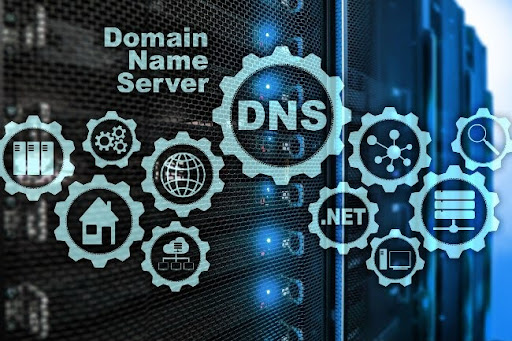Digital threats are evolving faster than ever. Companies, large or small, cannot afford to look the other way when it comes to protecting their digital infrastructure. Here is one aspect that is often overlooked, yet is key to digital security: DNS health.
But what does this mean exactly? And why is it so important to control DNS health within the strategy of business cybersecurity?
Before we dive in, let’s make a crucial point. If your company doesn’t yet have Continuous Threat Exposure Management (CTEM) tools, you may be leaving windows open to the outside without realizing it.
This is where Kartos, our solution for cyber surveillance for companies,specifically designed to detect, assess, and continuously reduce your organization’s digital exposure, appears. Kartos not only monitors your digital attack surface but also allows you to protect your DNS and detect related vulnerabilities before attackers exploit them.
What exactly is DNS health?
When discussing DNS health, we refer to the security status, configuration, and maintenance of an organization’s domain name system. DNS acts as a “phone book” for the internet: it converts domain names (like enthec.com) into IP addresses that machines can understand.
A secure DNS server isn’t just a technical issue; it’s an essential pillar of your digital defense. Cybercriminals can exploit a misconfigured DNS to carry out attacks such as:
- Pharming: redirect your employees or customers to fake websites.
- DNS hijacking: hijack your web traffic for espionage or fraud.
- DDoS through DNS amplification: take advantage of your DNS as a vector to saturate other servers.
These risks affect large corporations as well. SMEs are also frequent targets precisely because they neglect aspects like this.
Why do so many companies ignore DNS health?
There are several reasons, but one of the main ones is the false sense of security.. Many organizations believe they are protected by having antivirus systems or firewalls. However, these devices do not monitor or manage your domain name system configuration.
On the other hand, DNS is usually managed by third parties (such as hosting or domain providers), which means that, despite being a critical element, companies do not include it in their security audits.

What does it mean to have good DNS control
Having effective DNS control means keeping a series of good practices active and up-to-date. These include:
- Audit your DNS records and detect outdated or unnecessary settings.
- Ensure your SPF, DKIM, and DMARC records are correctly configured to prevent email phishing.
- Use secure and redundant DNS servers.
- Protect access to your DNS management with strong authentication.
- Monitor unauthorized access attempts or changes.
These steps are essential to ensure a business environment free of invisible breaches.
Kartos and continuous DNS monitoring
This is where Kartos comes into play. It proactively monitors your DNS status and alerts you to any suspicious changes. It’s not just about protecting them but anticipating the future.
Kartos allows you:
- See your digital display surface in real time.
- Detect uncontrolled or misconfigured assets (including DNS and subdomains).
- Prioritize vulnerabilities with an approach based on real risk.
- Receive early warnings on possible attack vectors involving DNS.
You may be interested in→ Real-time vulnerability management: a step forward in cybersecurity.
Comprehensive, continuous management distinguishes a company that reacts to an attack from one that neutralizes it before it occurs.
How do you know if your DNS server is secure?
Some tools allow for spot checks, but that’s not enough. The digital environment changes daily, and attackers find new ways to exploit weaknesses. Therefore, a CTEM solution like Kartos is essential.
Kartos not only tells you if your DNS is secure now but also helps you maintain that security continuously.. This includes automated analysis, detailed reporting, and remediation suggestions tailored to your technological reality.
Practical recommendations to improve your company’s DNS health
If you don’t yet have a solution like Kartos, we recommend that you at least consider the following points:
- Update your DNS records frequently. Discard any unused items. frequently. Discard any unused items.
- Activate DNSSEC to protect the integrity of queries.
- Audit your SPF, DKIM, and DMARC registers with the help of specialists.
- Avoid using public DNS servers as the principal solution.
- Control who has access to your DNS console.. Not all technicians need to have full permissions.
The good news is that it’s never too late to improve your organization’s DNS health.
Neglecting your digital infrastructure’s DNS health can have serious financial and reputation consequences. DNS control and a secure DNS server should be at the heart of any modern cybersecurity policy.
With our solution, Kartos, you are protecting your DNS and taking a step towards a smarter, more preventative, and continuous security model.


